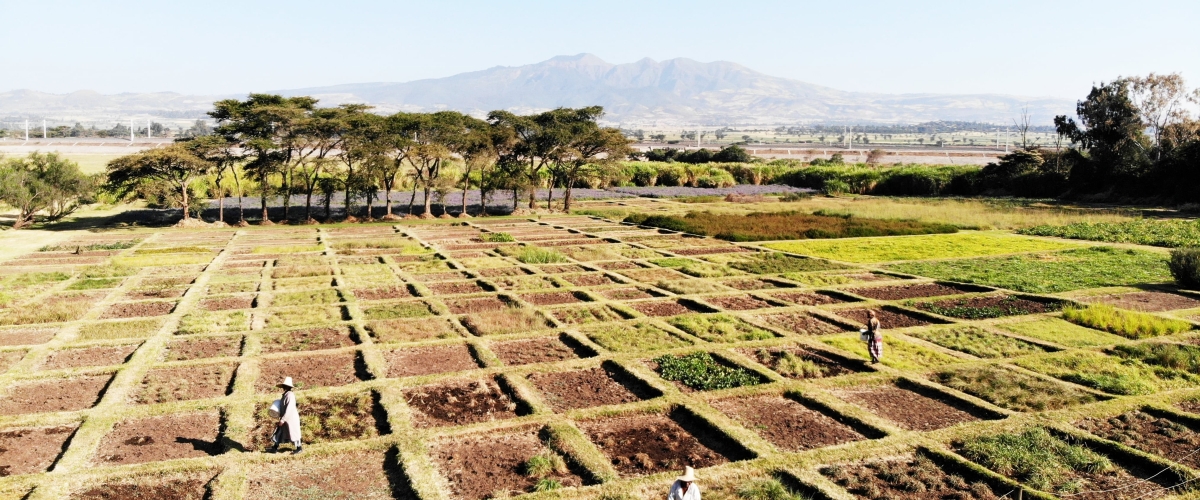
The problem
In the Southern African Development Community (SADC) region, at least 60% of 364 million people from the 16 member states, directly or indirectly dependent on agricultural activities for their livelihoods. However, primary production in this sector predominantly takes place under rain-fed conditions by smallholder farmers. And productivity among the smallholder farmers has been declining due to a number of reasons, which includes climate change, low capacity for the rural communities to adapt to change, and degradation of the natural resource base that supports agricultural production.
The FSRP
The Food Systems Resilience Project (FSRP) is a regional project supported by the World Bank (WB). The project is being developed in phases, with the first phase of 6-year duration focusing on Madagascar in Southern Africa, Ethiopia in East Africa, IGAD and CCARDESA. Future phases are expected to increase the number of countries and regional organisations both in Southern and East Africa regions.
Key intervention
The FSRP focuses on building resilience of the food systems of countries and regions by using smart approaches that circumvent the effects of climate change on agriculture. The programme is to deal with and resolve the underlying structural challenges of food insecurity and reduce beneficiaries’ sensitivity to unpredictable climate events, crises, and conflicts.
PDO-level indicator
10%
Reduction in food insecure people in Program-targeted areas.
1,637,600
Farmers adopting resilience-enhancing technologies and practices.
250,00 ha
Land area under sustainable land management practices.
25%
Increase in volume of agriculture production sold on domestic markets.
6 Policy Products
Adopted with program's support related to agriculture, natural resource management, and food systems resilience
Project Components
1. [Re-] building resilient productive capacity;
2. Supporting sustainable development of natural resources in agricultural landscape;
3. Getting to market;
4. Promoting a greater focus on food systems resilience in national and regional policymaking;
5. Contingent emergency response component (CERC); and
6. Project management.
The role of CCARDESA under FSRP
CCARDESA is a subsidiary organization of SADC which was established in 2010 by the SADC Member States as a specialized implementing body for issues of agricultural research and development of Southern Africa. CCARDESA will contribute to the implementation of the FSRP through coordinating the regional actions and facilitating the national actions in Madagascar and other countries that will join. CCARDESA will contribute through:
a) Technically backstopping and coordinating the development of climate and other information systems and developing joint research initiatives at the regional level.
b) Disseminating climate-adapted agricultural technologies and innovation systems by strengthening existing regional research centers and establishing new national and regional research centers.
c) Providing support to the development of competitive agri-food value chains and well-functioning marketing infrastructure; and fully utilising the provisions of the AfCTA and other intraregional trade and value addition opportunities.
d) Supporting national government agencies and regional organizations in ways that pertain to high-level policies, initiatives, institutional arrangements, and even budgeting decisions that have cross-cutting relevance to food systems resilience. CCARDESA will support participating countries and other SADC member states in harmonizing country polities with international and regional cooperation frameworks, agricultural quality standards, and food safety protocols. CCARDESA will also support the preparation of regional policies and regulations to increase regional flows of agricultural goods and inputs, and to consolidate the regional food reserve system.
e) Convening key meetings of the FSRP for project management, policy dialogues, technical discussions and information sharing.
f) Supporting the development of information-sharing platforms and use the CCARDESA ICKM to disseminate information to a wide range of stakeholders.
g) Providing supportive conditions for monitoring, evaluation and learning processes for participating countries and stakeholders.
h) Encouraging the rationalization and harmonization of policies, procedures, and regulations that support the development of resilient food systems; including the management of studies that generate information for decision making.
Project lead:
Dr Majola Mabuza mmabuza@ccardesa.org





